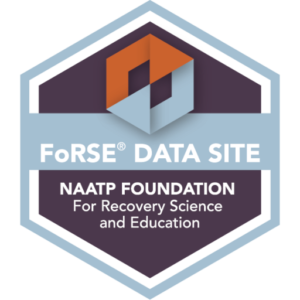Addiction is a pervasive issue that affects millions of individuals and their loved ones. If you suspect someone close to you is battling addiction, it can be incredibly distressing. Often, those struggling with addiction may not openly communicate their challenges, making it difficult to spot the problem. However, there are certain tell-tale signs that can help you identify whether a loved one is in need of help. In this blog, we will explore some examples for addiction that you can watch out for, offering insight into behaviors and changes that may indicate substance use disorders.
1. Physical Changes
One of the clearest examples for addiction is a noticeable change in appearance and physical health. Someone who is struggling with addiction may start to neglect their hygiene or overall appearance. They might lose or gain weight rapidly, appear disheveled, or suffer from frequent illnesses due to a weakened immune system. Additionally, you may notice physical signs such as red eyes, dilated or constricted pupils, tremors, or marks on the skin (especially if they are abusing intravenous substances). These physical indicators should not be ignored, as they can be some of the first noticeable signs that something is wrong.
2. Behavioral Shifts
Behavioral changes are another significant example for addiction. Someone who once was responsible and reliable might suddenly become erratic or inconsistent. They may miss work or school frequently, show a lack of interest in hobbies they once enjoyed, or fail to meet obligations and responsibilities. In many cases, these behavioral changes stem from the impact that substances have on brain function, impairing judgment, decision-making, and motivation. If your loved one starts to show signs of unreliability or begins engaging in risky behaviors, it could be a red flag that they are struggling with addiction.
3. Financial Instability
One of the more subtle examples for addiction is unexplained financial difficulties. Addiction often leads individuals to prioritize obtaining their substance of choice over other financial responsibilities. You may notice that your loved one is asking for money frequently, unable to pay bills, or selling personal belongings to fund their addiction. Sudden and inexplicable financial instability can be a clear sign that someone is using substances in a way that is harmful to their wellbeing.

4. Secrecy and Isolation
Another example for addiction is an increase in secrecy and withdrawal from social interactions. People struggling with addiction often become secretive about their activities and whereabouts. They may start avoiding family and friends, canceling plans, or spending more time alone. The need for privacy often stems from shame, fear of judgment, or a desire to conceal their substance use. If your loved one starts to distance themselves from you or becomes overly secretive, it might be time to address your concerns.
5. Mood Swings and Emotional Instability
Sudden mood swings and emotional instability are also classic examples for addiction. Substance use can significantly impact an individual’s mental health, leading to feelings of irritability, depression, anxiety, or aggression. You may notice that your loved one experiences frequent outbursts or appears overly emotional, alternating between highs and lows. While everyone has emotional fluctuations from time to time, extreme or erratic changes in mood can indicate a deeper problem, especially when coupled with other signs of addiction.
6. Problems in Relationships
Strained relationships are another example for addiction. Addiction can cause individuals to act in ways that hurt those around them. This might include lying, manipulating, or becoming confrontational when questioned about their behavior. Over time, these actions can erode trust and cause friction in relationships with family and friends. If your loved one’s relationships are deteriorating rapidly, or if they seem to be in constant conflict with others, it could be a sign that addiction is at play.
7. Decline in Work or School Performance
A sudden drop in performance at work or school can be a significant example for addiction. Addiction often causes individuals to lose focus and motivation, leading to poor attendance, lackluster performance, and even disciplinary action. If your loved one is suddenly underperforming in areas where they once excelled, or if they’ve been reprimanded or let go from a job, it’s worth considering whether addiction could be the underlying cause.
8. Legal Issues
Another important example for addiction is involvement in legal issues. People struggling with addiction often find themselves engaging in illegal activities, whether it’s driving under the influence, stealing to support their habit, or being involved in physical altercations. If your loved one is suddenly facing legal problems that are out of character, this could be a clear sign that they are battling addiction. Legal trouble can be an urgent indicator that professional intervention is needed.
9. Health Complications
While physical changes can be an early example for addiction, chronic health issues are also a major sign that something is wrong. Individuals with addiction may suffer from frequent infections, injuries, or conditions related to substance abuse, such as liver damage from alcohol, lung issues from smoking, or heart problems from stimulants. Ignoring health problems is common among people with addiction, as their focus shifts primarily to maintaining their substance use. If your loved one’s health is declining rapidly and they’re refusing medical attention, addiction may be the cause.
10. Denial and Defensiveness
Lastly, one of the most challenging examples for addiction is denial. Many people who struggle with addiction are unable or unwilling to recognize that they have a problem. When confronted, they may become defensive, angry, or insist that they can stop using at any time. This denial is often fueled by fear and stigma surrounding addiction. If your loved one becomes defensive when asked about their behavior, this is a significant sign that they may be struggling.
What You Can Do
If you have identified one or more of these examples for addiction in your loved one, it’s important to approach the situation with compassion. Confronting someone about their addiction can be difficult, but it is a crucial step in getting them the help they need. Here are a few ways to start the conversation:
- Choose the Right Time: Find a calm and private moment to speak with your loved one about your concerns.
- Use “I” Statements: Avoid blaming language and focus on how their behavior is affecting you and others. For example, “I’ve noticed you haven’t been yourself lately, and I’m worried about you.”
- Offer Support: Let them know that you’re there to help them through the process of seeking treatment. Encourage them to consider professional support, such as the programs offered by Longleaf Recovery & Wellness.
Get Help Now
At Longleaf Recovery & Wellness, we understand how difficult it can be to watch a loved one struggle with addiction. Our team is dedicated to providing compassionate care and a comprehensive approach to recovery. If you recognize any of these examples for addiction in someone close to you, it may be time to reach out for help. Contact us today to learn more about how we can support your loved one on the path to recovery.




